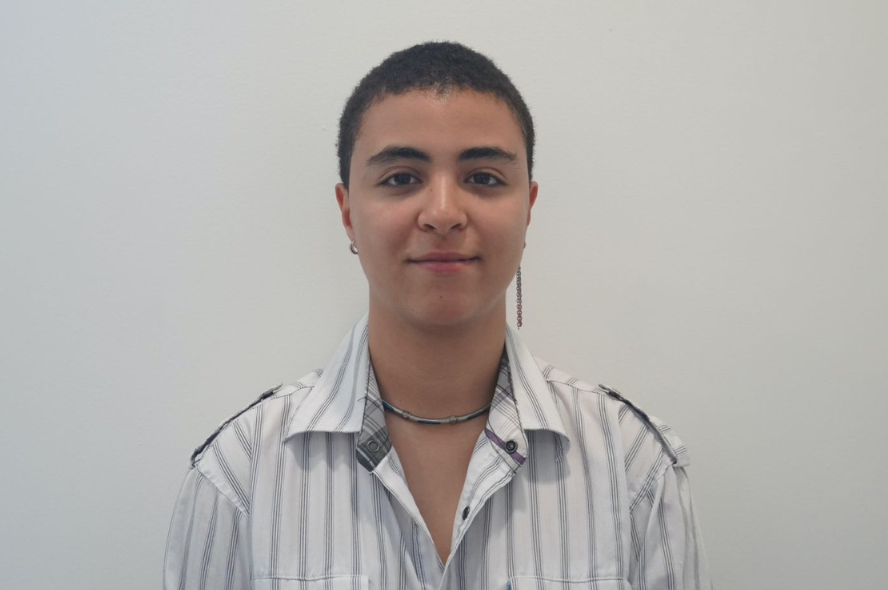Summer scholars share their stories: Sara Rochdi

The Tufts Summer Scholars Program supports independent research experiences for a handful of undergraduate students each summer. Scholars spend ten weeks working closely with a faculty mentor to pursue a research project of their choosing. Their work culminates in a series of presentations at a poster session in the fall and the Undergraduate Research Symposium in the spring. This summer, seven juniors and seniors in the School of Engineering were selected for the program. This series highlights some of their experiences.
What are you working on this summer?
I’m working with Professor Sergio Fantini and PhD student Jodee Frias on a project using Dual-Slope Near-Infrared Spectroscopy (NIRS) to measure brain activity. NIRS is a non-invasive optical technique that tracks changes in blood flow and oxygenation in the brain by detecting absorption of light.
Our project focuses on the visual cortex and looks at how brain responses in the same individual vary by comparing physiological characteristics in the brain through different stimulation-rest frequencies. Combined with the dual-slope method, this technique could make brain monitoring more reliable and help improve diagnostics for neurological conditions such as stroke, traumatic brain injury, vascular dementia, and Alzheimer’s disease.
Why did you decide to do the summer scholars program?
The Summer Scholars program felt like strong preparation for independent research which aligns with my goals of pursuing a PhD. It allowed a lot of room for me to pursue a topic of interest. Summer Scholars also offers the chance to show my work in different settings such as poster presentations and conferences. The weekly program meetings prepared me for the presentation at the summer conference. These experiences will help me become more comfortable with presenting my work which I believe is an important skill for a researcher to have.
Who is your faculty mentor? How are they supporting your work?
My faculty mentor is Professor Sergio Fantini. He is always available for questions and support. I really enjoy our weekly meetings where I can discuss my progress and receive feedback and different views of the data. My direct mentor is PhD student Jodee Frias, who has been immensely supportive of my work in every aspect including instrumentation, data analysis, and literature suggestions to strengthen my knowledge. Both Professor Fantini and Jodee Frias’ mentorship have encouraged critical thinking which has helped me develop coherent research analyses and conclusions.
What has stood out to you the most in your lab experience so far?
I’ve learned to think more critically and systematically when something goes wrong, and I’ve developed a new appreciation for the process of refining experiments. There are many variables that can affect the results in instrumentation—such as contact of the probes with the brain or physiological variables––and learning how to detect and troubleshoot issues has been an important part of this experience.
How has your Tufts experience impacted your career goals?
Tufts has allowed me to explore my research passions freely. I went from working with neural cells in a wet lab environment that supported my initial research interests in neurodegenerative diseases, into an instrumentation and data analysis focused lab which brought out my interest in medical instrumentation.
The Summer Scholars Program helped me develop a wide range of skills in a short amount of time—not just technical ones like CAD modeling, MATLAB coding, and data analysis—but also critical research skills like reading and understanding scientific literature, recruiting human subjects, and running optical experiments from start to finish.
The grant that comes with the Summer Scholars program was a very important factor for me. As an international, first-generation, low-income student, this independent research opportunity would not have been possible without the Summer Scholars Program. I was able to dedicate myself entirely to my work, without worrying about my daily expenses.
Department:
Biomedical Engineering